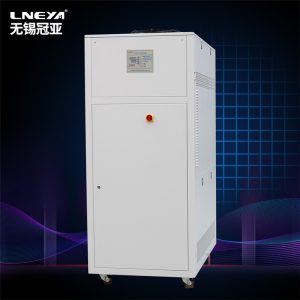water cooled chiller types
Types of Water Chillers
Water chillers are categorized based on the type of compressor and the refrigeration cycle they use:
Centrifugal Chillers: These chillers use a centrifugal compressor to handle large cooling loads and are known for their high efficiency and low maintenance.

Screw Chillers: Screw chillers employ a screw compressor, which is suitable for applications with varying cooling demands. They are compact and offer quiet operation.
Absorption Chillers: These chillers use a heat source instead of a mechanical compressor and are known for their energy efficiency and environmentally friendly operation.
Scroll Chillers: Scroll chillers use a scroll compressor with two spiral plates to compress the refrigerant. They are efficient and reliable for small to medium-scale cooling needs.
Reciprocating Chillers: These chillers use a piston to compress the refrigerant and are available in various sizes. They offer precise temperature control.
Applications of Water Chillers

Water chillers are used in a wide range of applications, including:
Commercial Buildings: For air conditioning and maintaining comfortable indoor environments.
Industrial Processes: In manufacturing and processing facilities where precise temperature control is required.
Data Centers: To maintain optimal temperatures for servers and IT equipment.
Healthcare Facilities: For critical temperature-sensitive environments like laboratories and operating rooms.
Selecting a Water Chiller
When selecting a water chiller, consider factors such as:
Cooling Load: Ensure the chiller can meet the required cooling demand.
Energy Efficiency: Look for chillers with high EER or COP ratings.
Refrigerant Type: Choose options with low global warming potential (GWP) to minimize environmental impact.
System Integration: Consider how the chiller will integrate with existing systems.
Supplier Reputation: Choose a reputable supplier with a history of reliable products and good after-sales service.
Energy Efficiency and Environmental Impact

Water-cooled chillers are designed to be energy-efficient, with many models using environmentally friendly refrigerants. The use of advanced compressors, smart controls, and optimized heat transfer surfaces contributes to their high energy efficiency. Manufacturers are also developing chillers that use low GWP refrigerants to reduce the environmental impact.
Market Trends and Technological Advancements
The global water chiller market is growing due to increasing demand for efficient cooling solutions. Technological advancements, such as IoT integration and variable-speed drives, are making chillers more energy-efficient and easier to monitor and maintain. The market is also driven by a focus on energy efficiency and sustainability, with initiatives promoting green buildings and eco-friendly technologies.
Conclusion
Water chiller types offer a range of options for various cooling needs, from large commercial buildings to industrial processes. Their high efficiency and reliability make them a popular choice in many sectors. As technology continues to advance, water chillers are becoming more energy-efficient and environmentally friendly, meeting the growing demand for sustainable cooling solutions.
Related recommendations
cooling system chiller
207Cooling System Chillers: A Comprehensive Guide Cooling system chillers are essential in a wide range of industrial and commercial applications, from air conditioning to complex manufacturing pr...
View detailsthermic fluid heating system
175Introduction to Thermic Fluid Heating Systems Thermic fluid heating systems are engineered to transfer heat energy efficiently in industrial processes. These systems circulate a heat transfer m...
View detailsdifference between air cooled chiller and water cooled chiller
131Differences between Air Cooled Chiller and Water Cooled ChillerCooling Method Air Cooled Chiller: It dissipates heat through air. Fans are used to blow air over the condenser, enabling the ...
View detailsAdvantages of laboratory low-temperature circulators
729Advantages of laboratory low-temperature circulators The laboratory low-temperature circulator can simultaneously provide constant temperature and current refrigeration, heating, and ...
View details
 LNEYA Thermal Test Chillers
LNEYA Thermal Test Chillers





HelloPlease log in